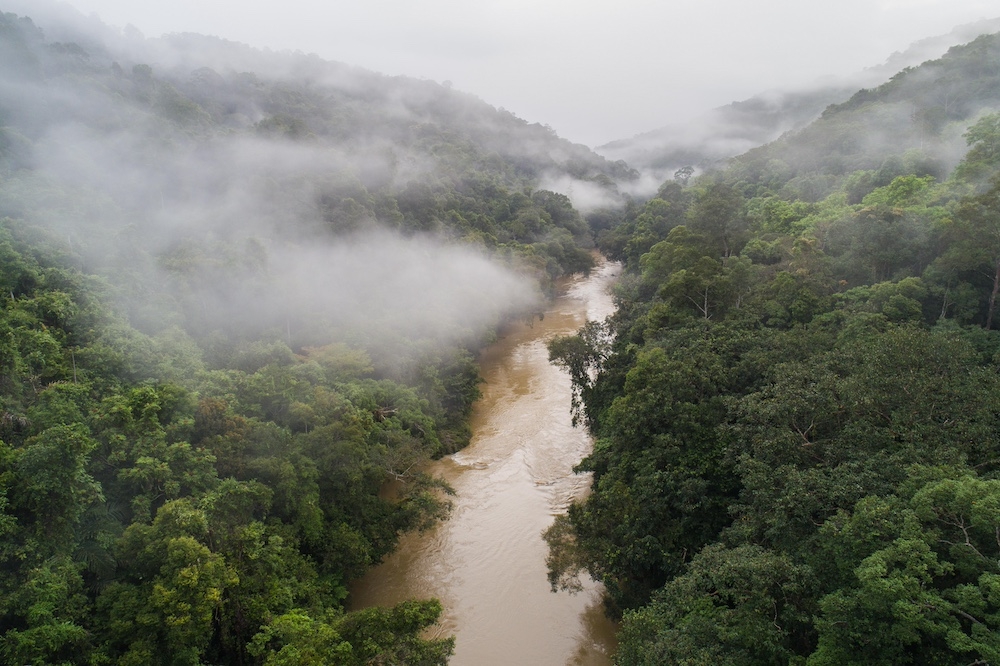OCTOBER 30 — In the recent Budget speech, the Prime Minister said it was highly inappropriate for institutions to sell strategic assets in order to make settlements. It is obvious — sacrificing assets which generate income in the long term is a poor way to solve short-term issues. In the same vein, we must consider how we are managing the fundamental assets which our economy, and in fact our society and very lives depend on — our natural capital.
A calculation provided by the international research organisation Global Footprint Network, shows that we are using our resources at an alarmingly fast rate. It is only a matter of time until already degraded ecosystems begin to collapse. Earth Overshoot Day is the day when we have used up, more from nature, than the Earth can replenish in a year. This means that from that date until 31 December, we are in debt to the planet. To everyone’s dismay, it is coming earlier each year. In 2023, it was on 2 August, and we have been in deficit since 1970.
For Malaysia, this year’s Earth Overshoot Day was even earlier, on 16 May. The analogy of “belum habis bulan, sudah habis gaji” (spending your entire salary before the end of the month) is apt here. In any prudent household, we would have set aside some of our earnings for rainy days and put some up in savings. Instead, we have depleted our earnings even before the middle of the month and are now relying on others to meet our necessities. This is the implication of Earth Overshoot Day, using our annual allocation of natural resources way before the end of the year.

Our environmental deficit is growing, and we are seeing the consequences manifested in natural disasters. For example, excessive logging has weakened our forests’ ability to prevent soil erosion, leading to landslides and flash floods during heavy rain. To make matters worse, we are even converting forests into agricultural plantations for medium-term gains.
Given this, it was encouraging to see the recognition of our natural heritage and biodiversity continuing to feature in budget announcements. One is the Ecological Fiscal Transfer (EFT), a mechanism where the federal government transfers money to state governments based on the size of their protected areas. The increase from RM150 million to RM200 million is an essential step that will help states maintain protected areas in the marine and terrestrial landscapes — which are our stock of natural wealth, providing essential ecosystem services and food security to people throughout Malaysia. EFT is a way to protect and nurture our rich heritage and we hope it will reach the level needed for meaningful impact.
Nurturing our natural resources creates the opportunity for Malaysia to be a regional economic champion. Looking at the current global shift to greener practices, as well as our rich natural advantages, we are well positioned to succeed in the green economy. The budget supports the Green Economy by way of providing RM1 billion in biodiversity sukuk to replant degraded forests. There are also tax exemptions for social enterprises to implement carbon projects in enhancing our forest as a carbon sink towards combating climate change. The allocation of funds towards this initiative is a good move, as it has the potential to effectively accelerate and spur forest restoration efforts. However, some of the reskilling allocations should be channelled to build a workforce that can support our Green Economy transition.
Additionally, the government’s RM11.8 billion support of 33 flood mitigation projects is a proactive step to prevent future disasters. However, to fully address the root causes of the problem, we need to value nature in economic and social terms and prioritise nature based solutions that harness the power of nature to address major societal issues, including climate change. While the RM200 million EFT to nurture natural resources, ensuring our forests to function as they should be may seem like a big amount, it is only 1.69% of the RM11.8 billion allocation to flood mitigation projects. This suggests that giving more weight to protecting our natural resources is more cost-effective compared to mitigating the impact of floods due to our degraded forest.
While WWF-Malaysia applauds the government’s RM563 million slope rehabilitation budget, it is worth noting that part, if not all, of this expenditure, might have been avoided if existing environmental regulations and guidelines had been adhered to. Stricter regulations and proper landuse planning should be adopted to avoid forest conversion and overdevelopment in environmentally sensitive areas.
The “no-go” decision on 9 August to develop a new Tioman airport was a victory for nature, which is an important area for biodiversity. Nevertheless, the recent budget allocated RM47 million to improve passenger facilities at Tioman Airport and extend the existing runway to 1,300 metres. Allocation was also given to an infrastructure project that includes a proposed port at Pulau Carey, known to be the home of the Mah Meri people and has important mangrove habitats. We urge the government to carefully assess all infrastructure development projects, including their carrying capacity, environmental, social, and climate impacts, and to follow proper decision-making procedures when allocating funds.
As the Prime Minister has said, “Malaysia is one of the seventeen megadiverse countries in the world, making it a biodiversity superpower.” As such, Malaysia has the potential to be a regional economic champion by leveraging and enhancing its natural advantages and developing a sustainable economy with our green assets.
Budget 2024 is a positive step forward, but it is only the beginning. Just like we aim to reduce our fiscal deficit, we urge the government to increase investment in our natural capital to create a more sustainable, prosperous, and equitable Malaysia for all. Let’s aim to reverse the alarming trend of Earth Overshoot Day occurring earlier each year in Malaysia.
*This is the personal opinion of the writer or publication and does not necessarily represent the views of Malay Mail.





















